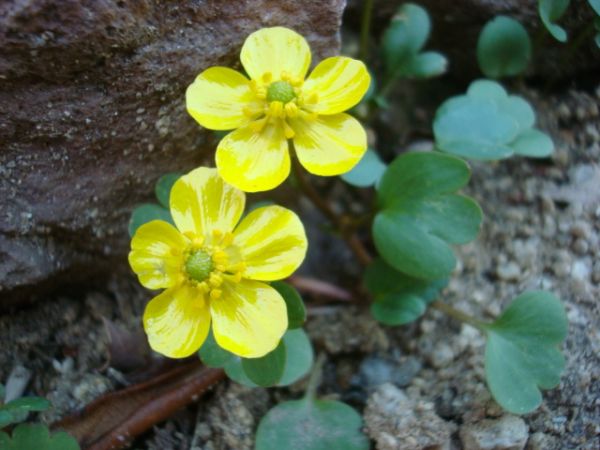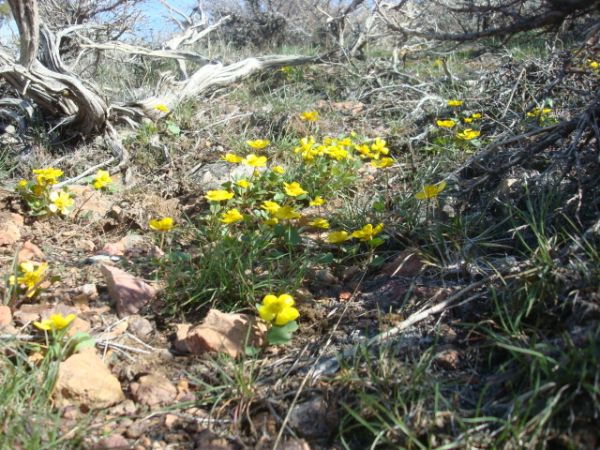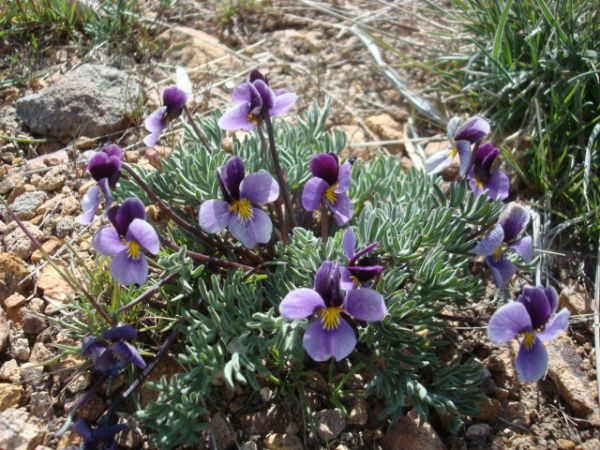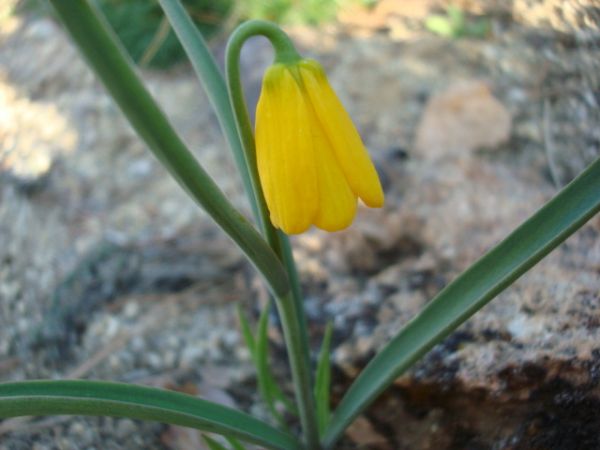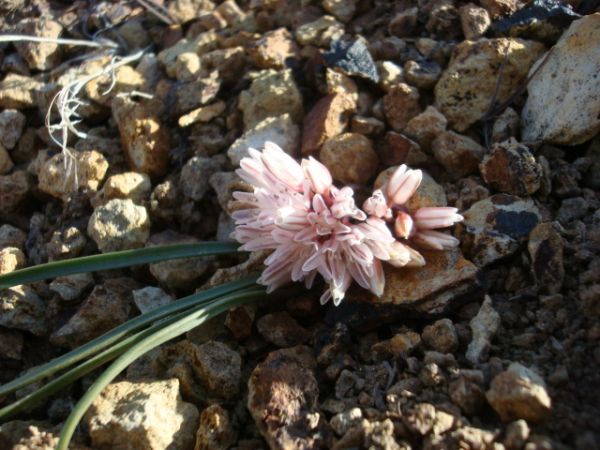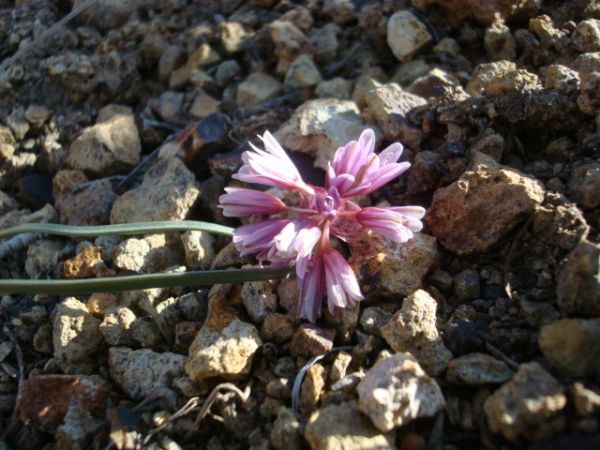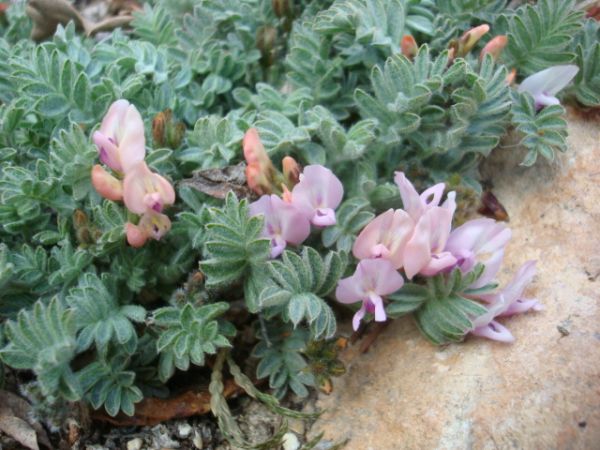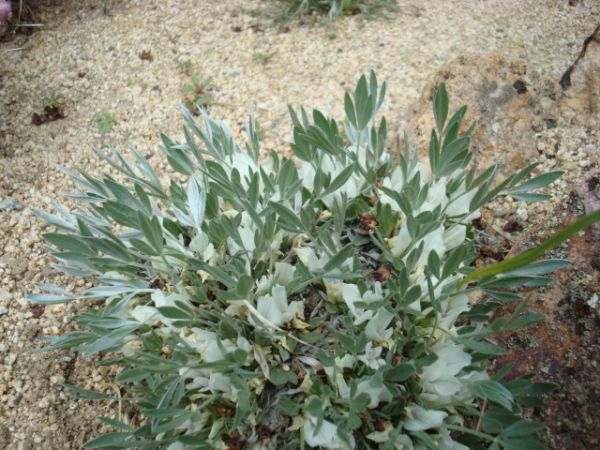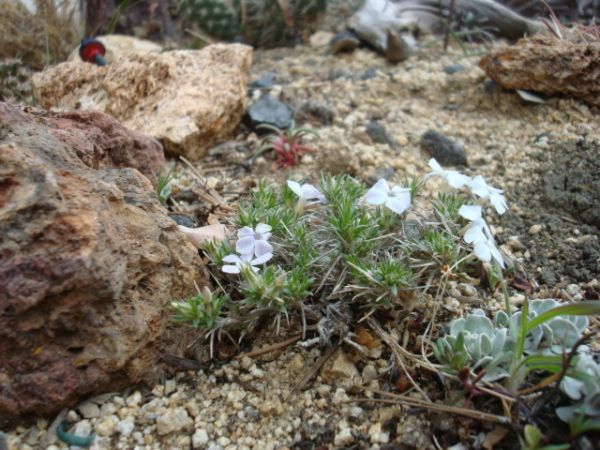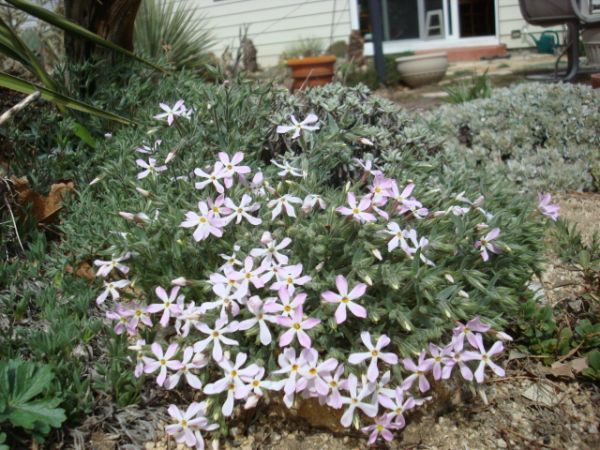Quick hardy cactus list
Posted: Fri Apr 02, 2010 3:51 pm
Cactaceae - Cactus Family
Coryphantha echinus
Coryphantha macromeris
Cylindropuntia acanthocarpa var. coloradensis
Cylindropuntia bigelovii
Cylindropuntia davisii
Cylindropuntia echinocarpa
Cylindropuntia imbricata var. arborescens
Cylindropuntia imbricata var. arborescens (white colored)
Cylindropuntia imbricata var. argentea
Cylindropuntia kleiniae
Cylindropuntia leptocaulis
Cylindropuntia ramosissima (non spined)
Cylindropuntia ramosissima (spined)
Clylindropuntia spinosior
Cylindropuntia viridiflora
Cylindropuntia whipplei (3 clones)
Echinocactus texensis
Echinocereus bonkerae
Echinocereus coccineus
Echinocereus dasyacanthus
Echinocereus kinneplianus var. krugerii
Echinocereus reichenbachii ssp. armatus
Echinocereus reichenbachii ssp. caespitosus
Echinocereus reichenbachii ssp. caespitosus var. minor
Echinocereus reichenbachii ssp. reichenbachii
Echinocereus mojavensis
Echinocereus triglochidiatus
Echinocereus triglochidiatus var inermis
Echinocereus viridiflorus
Echinocereus viridiflorus ssp. davisii
Echinocereus viridiflorus var. corellii
Echinocereus viridiflorus ssp. cylindricus
Escobaria minima
Escobaria missouriensis
Escobaria orcuttii
Escobaria vivipara var. arizonica
Escobaria vivipara var. bisbeeana
Escobaria vivipara var. neomexicana
Escobaria vivipara var rosea
Escobaria vivipara var. vivipara
Ferocactus hamatacanthus
Grusonia aggeria
Grusonia clavata (3 clones)
Grusonia pulchella (2 clones)
Grusonia stanleyi var.kunzei
Maihueniopsis darwinii
Maihueniopsis poepigii
Opuntia aciculata
Opuntia aurea (fusha)
Opuntia aurea (yellow)
Opuntia aff. aurea/basilaris (??)
Opuntia basilaris var. basilaris
Opuntia basilaris var. basilaris dwarf form
Opuntia basilaris var. heilii
Opuntia basilaris var. brachyclada
Opuntia basilaris var. ramosa
Opuntia fragilis (8 clones)
Opuntia fragilis var denuda (2 clones)
Opuntia humifusa (3 clones)
Opuntia littonalis var. vaseyi
Opuntia macrocentra
Opuntia macrocentra (dwarf form)
Opuntia macrorhiza (eastern form)
Opuntia polyacantha (peach colored)
Opuntia phaeacantha (large form)
Opuntia phaeacantha engelmannii
Opuntia phaeacantha englemannii (large clone)
Opuntia phaeacantha X basilaris hybrid “Snowball”
Opuntia polyacantha var erinacea
Opuntia polyacantha var. hystrucina
Opuntia polyacantha aff. nicholii
Opuntia polyacantha var. polyacantha
Opuntia polyacantha var. polyacantha “Rutila”
Opuntia polyacantha ursina/erinacea
Opuntia polyacantha Claude Barr hybrid selection
Opuntia polyacantha “Taylors Red”
Opuntia polyacantha “Red Gem”
Opuntia polyacantha X fragilis hybrid (clone one)
Opuntia polyacantha X fragilis hybrid (clone two)
Opuntia polyacantha X fragilis hybrid (clone three)
Pediocactus simpsonii (2 clones)
Sclerocactus parviflorus
That should about cover it I may have missed a couple
If the weather warms a little, there is a slim chance, I may end up with a hand full of flowers some time this spring.
I don't want to bore you but if you want to see picks of early spring companion plants that are in bloom right now let me know!!
Coryphantha echinus
Coryphantha macromeris
Cylindropuntia acanthocarpa var. coloradensis
Cylindropuntia bigelovii
Cylindropuntia davisii
Cylindropuntia echinocarpa
Cylindropuntia imbricata var. arborescens
Cylindropuntia imbricata var. arborescens (white colored)
Cylindropuntia imbricata var. argentea
Cylindropuntia kleiniae
Cylindropuntia leptocaulis
Cylindropuntia ramosissima (non spined)
Cylindropuntia ramosissima (spined)
Clylindropuntia spinosior
Cylindropuntia viridiflora
Cylindropuntia whipplei (3 clones)
Echinocactus texensis
Echinocereus bonkerae
Echinocereus coccineus
Echinocereus dasyacanthus
Echinocereus kinneplianus var. krugerii
Echinocereus reichenbachii ssp. armatus
Echinocereus reichenbachii ssp. caespitosus
Echinocereus reichenbachii ssp. caespitosus var. minor
Echinocereus reichenbachii ssp. reichenbachii
Echinocereus mojavensis
Echinocereus triglochidiatus
Echinocereus triglochidiatus var inermis
Echinocereus viridiflorus
Echinocereus viridiflorus ssp. davisii
Echinocereus viridiflorus var. corellii
Echinocereus viridiflorus ssp. cylindricus
Escobaria minima
Escobaria missouriensis
Escobaria orcuttii
Escobaria vivipara var. arizonica
Escobaria vivipara var. bisbeeana
Escobaria vivipara var. neomexicana
Escobaria vivipara var rosea
Escobaria vivipara var. vivipara
Ferocactus hamatacanthus
Grusonia aggeria
Grusonia clavata (3 clones)
Grusonia pulchella (2 clones)
Grusonia stanleyi var.kunzei
Maihueniopsis darwinii
Maihueniopsis poepigii
Opuntia aciculata
Opuntia aurea (fusha)
Opuntia aurea (yellow)
Opuntia aff. aurea/basilaris (??)
Opuntia basilaris var. basilaris
Opuntia basilaris var. basilaris dwarf form
Opuntia basilaris var. heilii
Opuntia basilaris var. brachyclada
Opuntia basilaris var. ramosa
Opuntia fragilis (8 clones)
Opuntia fragilis var denuda (2 clones)
Opuntia humifusa (3 clones)
Opuntia littonalis var. vaseyi
Opuntia macrocentra
Opuntia macrocentra (dwarf form)
Opuntia macrorhiza (eastern form)
Opuntia polyacantha (peach colored)
Opuntia phaeacantha (large form)
Opuntia phaeacantha engelmannii
Opuntia phaeacantha englemannii (large clone)
Opuntia phaeacantha X basilaris hybrid “Snowball”
Opuntia polyacantha var erinacea
Opuntia polyacantha var. hystrucina
Opuntia polyacantha aff. nicholii
Opuntia polyacantha var. polyacantha
Opuntia polyacantha var. polyacantha “Rutila”
Opuntia polyacantha ursina/erinacea
Opuntia polyacantha Claude Barr hybrid selection
Opuntia polyacantha “Taylors Red”
Opuntia polyacantha “Red Gem”
Opuntia polyacantha X fragilis hybrid (clone one)
Opuntia polyacantha X fragilis hybrid (clone two)
Opuntia polyacantha X fragilis hybrid (clone three)
Pediocactus simpsonii (2 clones)
Sclerocactus parviflorus
That should about cover it I may have missed a couple
If the weather warms a little, there is a slim chance, I may end up with a hand full of flowers some time this spring.
I don't want to bore you but if you want to see picks of early spring companion plants that are in bloom right now let me know!!
